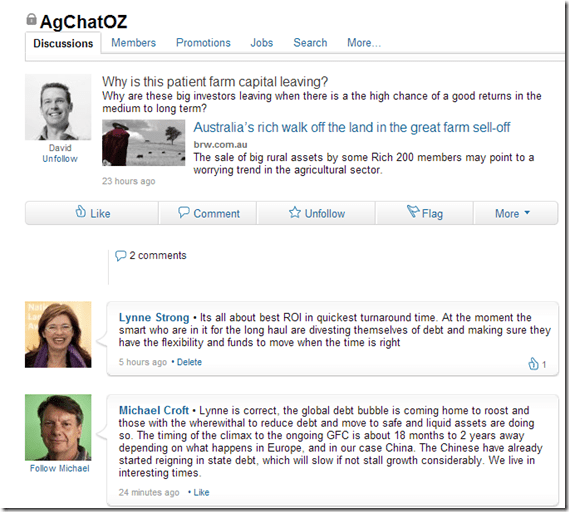I have been thinking about the brave people who have stood up to Coles and were counted on behalf of farmers and suppliers everywhere.
Coles CEO John Durkan at the $80m Devondale Dairy facility opening in Laverton Photo The Australian See story here
The whistleblowers who have gone to the ACCC and achieved these outcomes ‘Humbled Coles admits it did wrong’
FOOD and liquor giant Coles faces penalties of $10 million and may have to pay as much as $16m in refunds after admitting that it engaged in unconscionable conduct with small grocery suppliers.
In an embarrassing mea culpa, Wesfarmers group managing director Richard Goyder and Coles managing director John Durkan apologised unconditionally for the retailer’s dealings with suppliers after reaching a historic settlement with the Australian Competition and Consumer Commission (ACCC).
“I believe that in these dealings with suppliers, Coles crossed the line and regrettably treated these suppliers in a manner inconsistent with acceptable business practice,” Mr Durkan said.
“Coles sincerely regrets and apologises for its conduct in these dealings.”
I was talking to some-one just a few weeks ago who participated in a series of supplier roundtables Coles CEO John Durkan played an active role in. This person said Mr Durkan was laughing and joking like he didn’t have a care in the world
Looks like he knew he had Wesfarmers support no matter how the case turned out
Mr Goyder said both Wesfarmers and Coles “sincerely regretted” the unacceptable conduct, but voiced his support for Mr Durkan, dousing concerns he would be forced out for playing a major role in one of the cases brought by the ACCC.
Now its Woolworths turn to provide answers to the ACCC, See story here Woolworths accused of bullying Suppliers
WOOLWORTHS has been accused of bullying suppliers into paying millions of dollars to fund a discount war, prompting the competition watchdog to examine whether the supermarket giant is in breach of competition and consumer laws.
How brave do these supermarket suppliers whistle-blowers have to be. Its not as if they alternate channels of distribution the size of Coles and Woolworths in this country. They are the courageous people who are prepared to stand up for what is right first and foremost
I have appeared before the Senate Inquiry on Milk Price. It wasn’t much fun. I have even supported a fellow farmer who went to the ACCC about what he ( and I ) believed was unconscionable conduct towards a number of dairy farmers. He had been fighting this cause for quite a while and he told me all he needed was one or two more farmers to to back him up. . No matter how much proof we got it was obvious we were wasting our time. Those were the days before Rod Sims headed up the ACCC.
I have even been threatened. I remember the day well. The phone call came through the morning after I won the Bob Hawke Medal. I remember smiling to my self when I saw who the caller was and actually said I cant believe XXX would be the first person to ring and congratulate me . Well he wasn’t, he was threatening to sue me for something I said at the senate inquiry. That was a very traumatic day spent on the phone to my lawyer to see if he had a case which of course he didn’t. But it left a nasty taste in my mouth and I am in awe of the whistleblowers who start the process and remain in it for the long haul
And sadly do consumers really care?. Do we stop shopping in Coles and Woolworths.? Will this effect their bottom lines?. Will they just find more and less obvious ways of putting pressure on their suppliers?
You know what I think. I think many of these whistleblowers are Woolies and Coles staff. It must be very tough being asked to do things you know in your heart are wrong. I will guarantee not too many of them are laughing and joking when they reflect on the consequences on the actions of their employer,
This Christmas as I have a glass of wine and share Christmas with my friends I will toast the brave whistle-blowers and the ACCC and hope that we as consumers will find some way of making their efforts worthwhile














